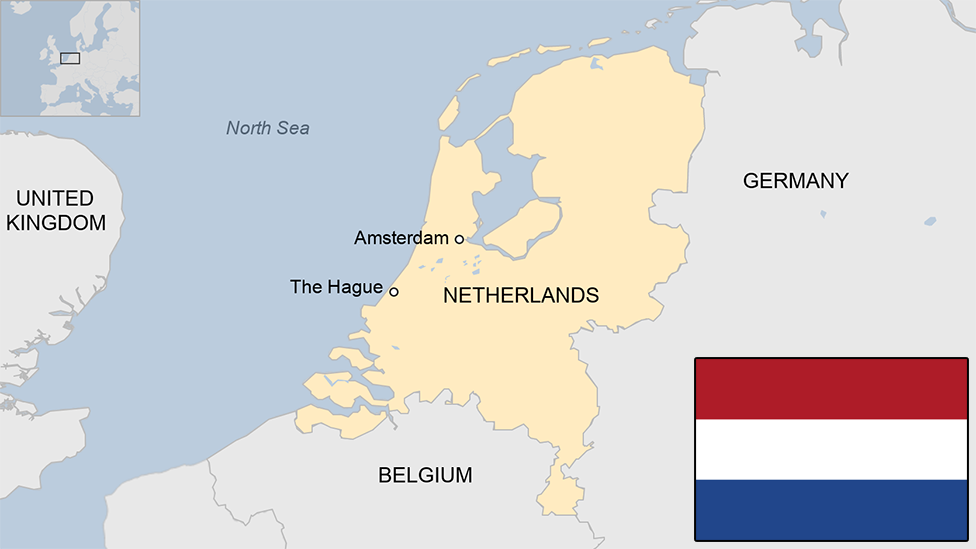Dutch show growing annoyance with EU
- Published
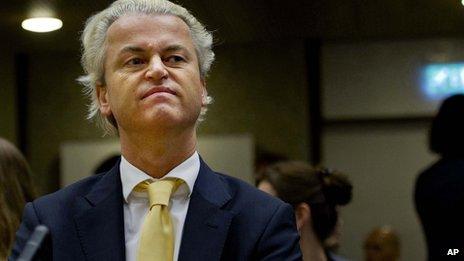
Far-right leader Geert Wilders, famous for turning his nose up to Brussels, wants the Netherlands to leave the eurozone and restore the Dutch guilder
The smartly dressed elderly man tilted his head back, opened his mouth, and lowered a raw slimy fish down the back of his throat.
The women running the herring counter at Dordrecht market were doing a roaring trade, cutting off heads, slicing open the fish, cleaning them up.
The youngest of them paused for a moment to consider what for her was the most important issue in Wednesday's general election.
"We should get out of the European Union. We pay too much money for other countries."
Was it a coincidence that her platinum blonde hair bore a remarkable resemblance to that of the leader and founder of the right-wing nationalist Freedom Party - Geert Wilders?
Mr Wilders has been campaigning on exactly that issue. Ditch the euro, bring back the old Dutch guilder. Get out of the European Union.
For a country that has been at the heart of European integration efforts almost ever since World War II ended, that might appear to be political suicide.
Political cowardice
Mr Wilders came to prominence - and a position of influence - because of his anti-immigrant stance. In parliamentary elections two years ago, his party took 15% of the vote.
He chose not to join the government then, preferring instead to give it the majority it needed to govern by pledging his support from outside the cabinet.
It was his decision earlier this year to end that support, at the eleventh hour of negotiations about public sector cuts, that brought down the government and led to this election.
He withdrew, he said, because he disagreed with "European diktats" that required the Netherlands to cut its deficit.
The government accused him of political cowardice. So too did many Dutch voters.
He is not the only one touting a Eurosceptic message.
The hard-left Socialist Party's Emile Roemer was for a while the surprise front-runner, with a "no more money to Greece" message, and a pledge to ignore those so-called "European diktats".
The polls suggest these two parties are vying for third and fourth place - neither is likely to win.
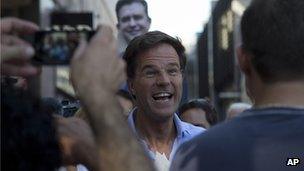
Prime Minister Mark Rutte says it is his job to sell Europe to the Dutch people
But the support they are commanding shows that concern about the direction in which the EU is moving is widespread even in the Netherlands.
The two leading candidates are the former prime minister, the right-of-centre Mark Rutte, and the centre-left Labour Party's Diederik Samsom.
As Mr Rutte strode around Dordrecht market recently, handing out leaflets and posing for photographs, he said it was his job to sell Europe to the Dutch.
"We are a trading nation and we are trading with Greece, Spain, Italy, Portugal and Ireland," he said.
"These are all important allies for us in terms of our trading. This is what the European Union is all about. A strong market with a strong currency. So it is in our interests to help as long as these countries are doing everything necessary to improve the situation."
'Anti-Brussels'
Down at the docks in Rotterdam, the largest port in Europe, cranes swing into action, unloading "Edith" - the world's biggest container ship, which has just come into the port.
Rotterdam is one of the most economically important cities on the continent. Vital for the European Union - dependent on it too. Even here though there are concerns.
"Germany, France, Belgium - that's one Europe. But in Spain, they have a siesta - it's about four hours sleeping in the afternoon. That's nice - but we pay for it," said one of the dock workers, Martijn van Willigen.
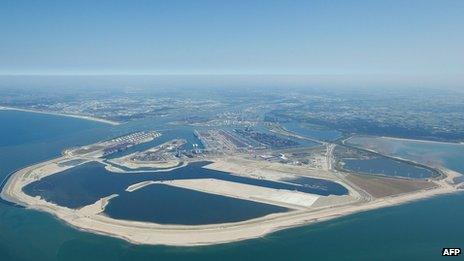
As Europe's largest port, Rotterdam is a vital trading partner for the European Union
So what of Wilders' line about leaving the EU? Another worker, Ron van Drunen, says that was taking it a step too far.
"We need to be at one with Europe, for our work in the port as well. I'd like to see a Europe with northern Europe and southern Europe. I think that's the best."
The question many are asking now is how the EU benefits them. Indeed even whether it does. This perhaps says as much about the inability of Brussels to sell its purpose to its people, as it does about the lasting power of the nation state and how citizens identify with it.
Euroscepticism is not the same force in the Netherlands as it is in Britain. For most Dutch questioning Europe, it is about making the EU work for them, not leaving it.
The Dutch have had their moments of "anti-Brussels" behaviour before, but the increasing concern and confusion about the euro crisis, and Europe's response to it, may prove to be something longer-lasting.
- Published11 September 2012
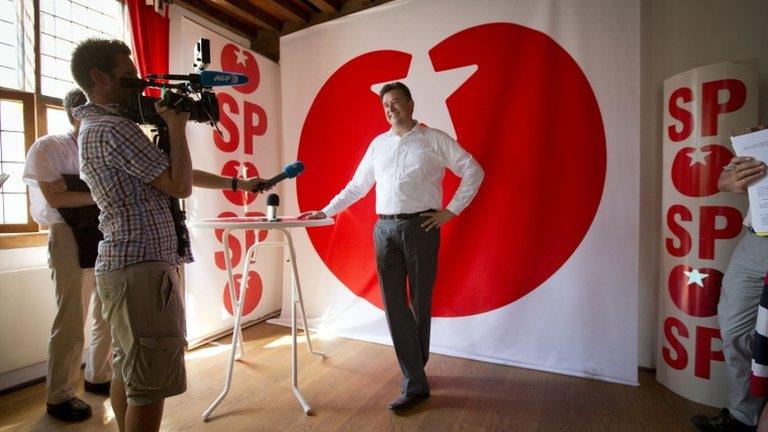
- Published8 September 2012
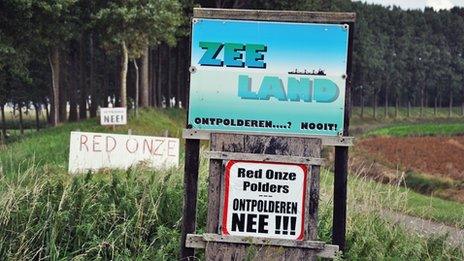
- Published6 September 2012
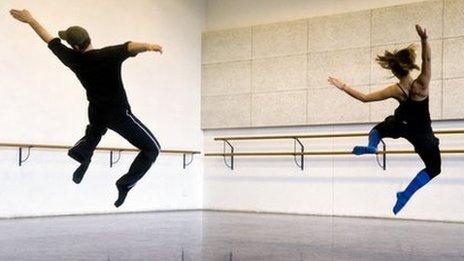
- Published30 August 2012
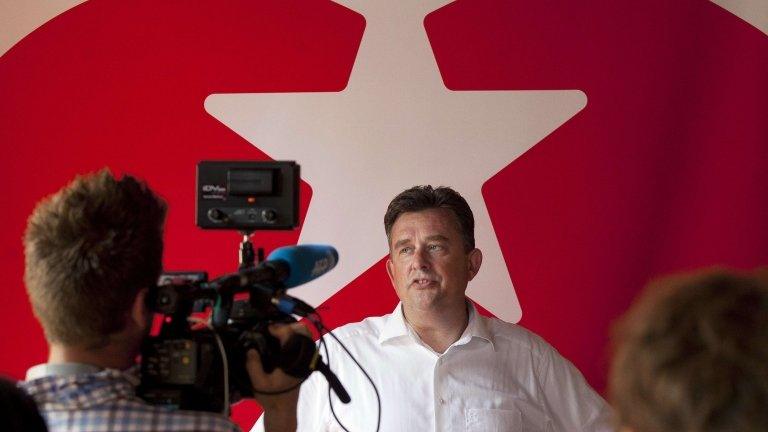
- Published2 July 2024
